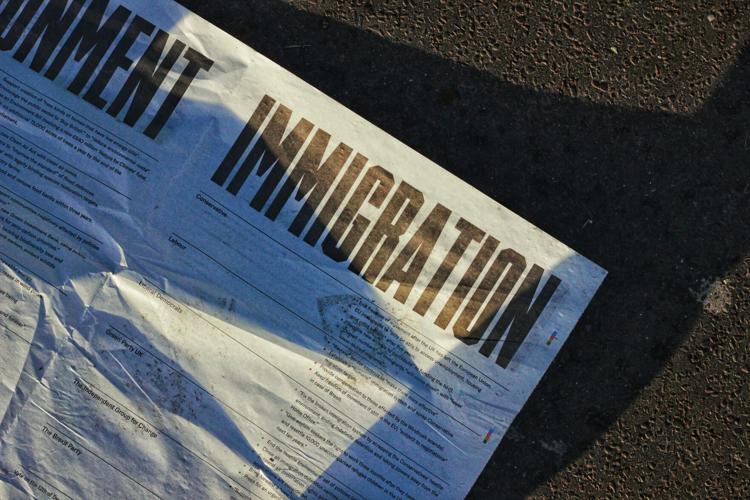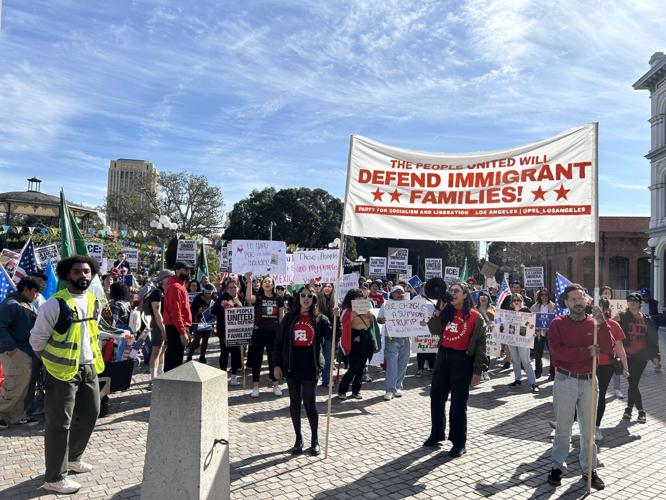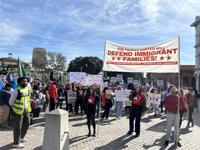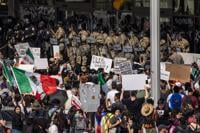
(Photo by Metin Ozer on Unsplash.)
Since Donald Trump took office, his administration has remained committed to fulfilling its promises of mass deportations of undocumented immigrants.
Immigration enforcement has taken place in major U.S. cities and states such as Riverside, San Bernardino, New York, Chicago, Philadelphia, Phoenix, San Diego, Denver, Miami and many more.
On January 26, U.S. Immigration and Customs Enforcement (ICE) said it arrested 956 people. But an NBC News report found immigration authorities had close to 1,200 arrests that day, and just 613, or nearly 52%, were considered “criminal arrests.”
In a leaked document reviewed by the Los Angeles Times, federal law enforcement agents reportedly intend to “carry out a ‘large scale’ immigration enforcement action in the Los Angeles area before the end of February.”
As of now, most ICE raids have primarily focused on undocumented immigrants with criminal backgrounds. According to KTLA, there have been instances of undocumented residents without criminal convictions being deported. On January 23, Giovanni Duran, who was brought to the states from El Salvador when he was a toddler, was arrested by ICE agents while he and his wife were taking their seven-year-old child to school in Echo Park.
The operation, which could possibly happen in LA, will focus on individuals who do not have legal status in the country.
Community members have not been happy with Trump's aggressive immigration policies. Since the beginning of the year, there have been several protests organized by communities and organizations, as well as walkouts from different school districts.

Demonstrators on Olvera Street. (Photo by Amairani Hernandez.)
Schools have also been preparing and sharing information about knowing their rights in case a student who is undocumented comes in contact with ICE since President Trumpreversed policies into allowing immigration law enforcement to enter sensitive areas.
Know Your Rights
Available to citizens and non-citizens, Know Your Rights cards are formatted as standard 3.5” x 2” business cards and are available for print in 16 languages, from Spanish to Haitian Creole to Tigrinya. You can click here to access the printable files, which were created by the Immigrant Legal Resource Center (ILRC).
These cards include critical information, including don’t open the door if immigration officers knock, don’t answer any questions, don’t sign anything without first consulting an attorney and give the card to the agent as a way to assert your constitutional rights.













(0) comments
Welcome to the discussion.
Log In
Keep it Clean. Please avoid obscene, vulgar, lewd, racist or sexually-oriented language.
PLEASE TURN OFF YOUR CAPS LOCK.
Don't Threaten. Threats of harming another person will not be tolerated.
Be Truthful. Don't knowingly lie about anyone or anything.
Be Nice. No racism, sexism or any sort of -ism that is degrading to another person.
Be Proactive. Use the 'Report' link on each comment to let us know of abusive posts.
Share with Us. We'd love to hear eyewitness accounts, the history behind an article.